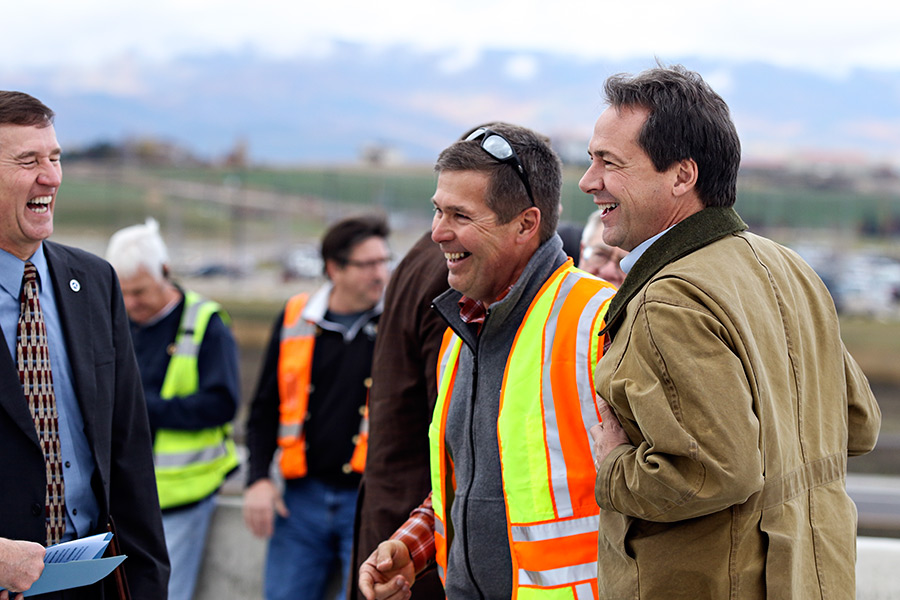Governor Warns House Bill Could Sink Infrastructure Again
Republican-led House Appropriations Committee broke up the Democratic governor's $150 million bonding bill
By Justin Franz
HELENA — Montana Gov. Steve Bullock’s budget director warned Friday that House Republicans’ stripped-down infrastructure bill could result once again in the state failing to pass a bonding bill for public works and capital projects across the state.
The Republican-led House Appropriations Committee broke up the Democratic governor’s $150 million bonding bill and inserted many of those projects into other infrastructure bills that would be paid for in cash.
It left out larger building projects, including $27 million for a new Montana Historical Society museum, $25 million to renovate Montana State University’s Romney Hall and $11 million for a new veterans’ home in Butte.
What’s left is $33.4 million in bonding for water, sewer, roads and bridges projects across the state.
Too few projects remain, meaning that this bill could die for lack of votes, similar to how an infrastructure bonding bill died in the House by a single vote in the 2015 session, Bullock budget director Dan Villa told the committee.
“We are deathly afraid that we are on that exact same path today, as this bill is structured,” Villa said.
Republicans, Democrats and the governor have all identified infrastructure as one of the most important issues for this legislative session, particularly after the 2015 bill failed to pass. Some of the large projects included in the governor’s bill have been waiting more than a decade for funding, while other projects would pay for roads, bridges, school repairs, water systems and wastewater systems.
House bill sponsor Rep. Mike Cuffe, R-Eureka, said $33.4 million in bonds was the upper limit of what the members of the Republican majority caucus could agree on. While some projects could be added back to the bill, Cuffe warned too many could cause the bill to collapse under its own weight.
“This bill was put together based on the appetite for bonding that I was able to find in polling the GOP caucus in the house,” Cuffe said. “Other projects can be amended in, but there is a limit to what may pass.”
The state would go into debt for 20 years to pay for the projects listed in the bill. Because of that, a bonding bill requires approval of two-thirds of the Legislature, which is 67 votes in the House and 34 in the Senate. That means Republicans will need the support of the Democratic minority to pass a bill.
The Democrats on the House Appropriations Committee said they are unhappy with the bill.
“I see this as a lowball offer and there are 41 votes on our side,” said Rep. Tom Woods, D-Bozeman. “We all have to do this together. I’m not there on this yet.”
Senate Republicans have introduced their own bonding measure that Senate Finance and Claims Committee planned to take up later Friday.
Rep. Jim Keane, D-Butte, estimated the Senate bill would pay for $98 million in projects, including all of the large building projects in the governor’s proposals except for the Montana Historical Society museum.
House Minority Leader Jenny Eck, D-Helena, said she agreed to pull that project from the bonding bill and instead seek to fund it through an increase in the state’s lodging tax. Eck said that was part of a compromise that Democrats and Republicans from both the House and Senate negotiated.
Cuffe said there were no negotiations with Democrats, only “discussions.”
House Appropriations Chairwoman Nancy Balance said amendments on the House bill would be considered on Monday.